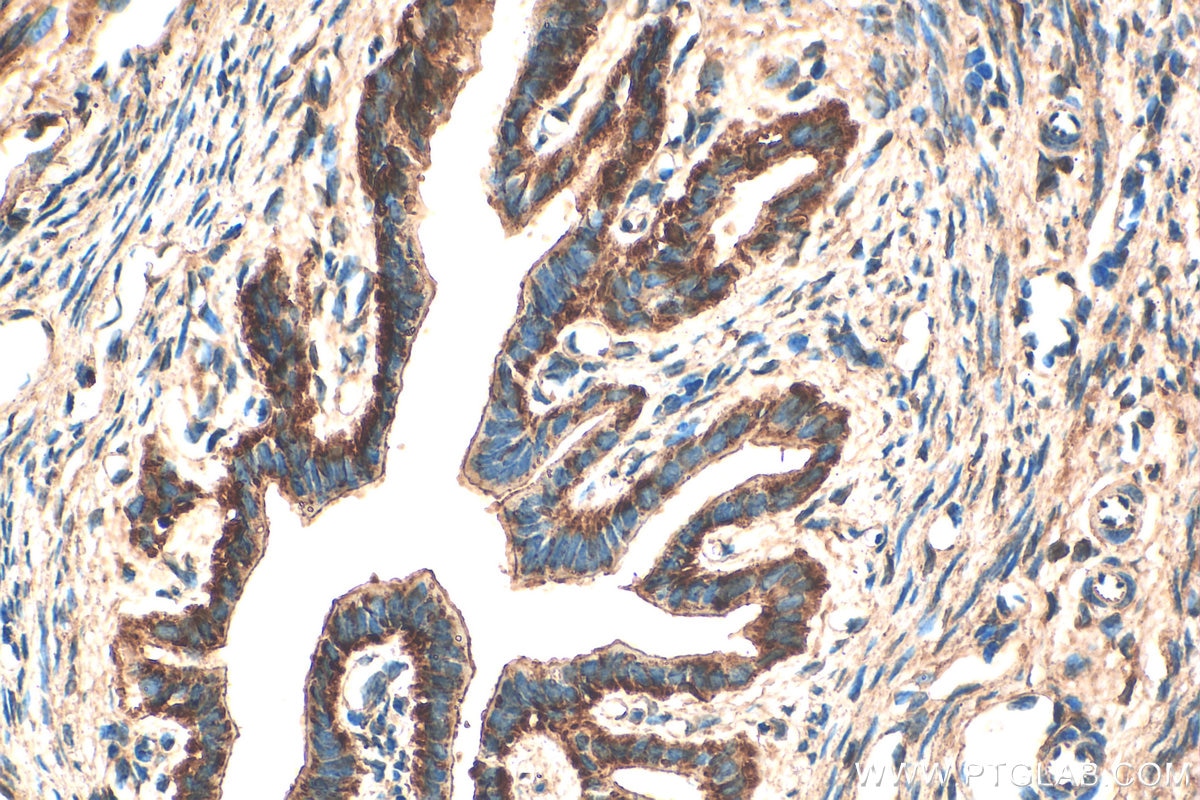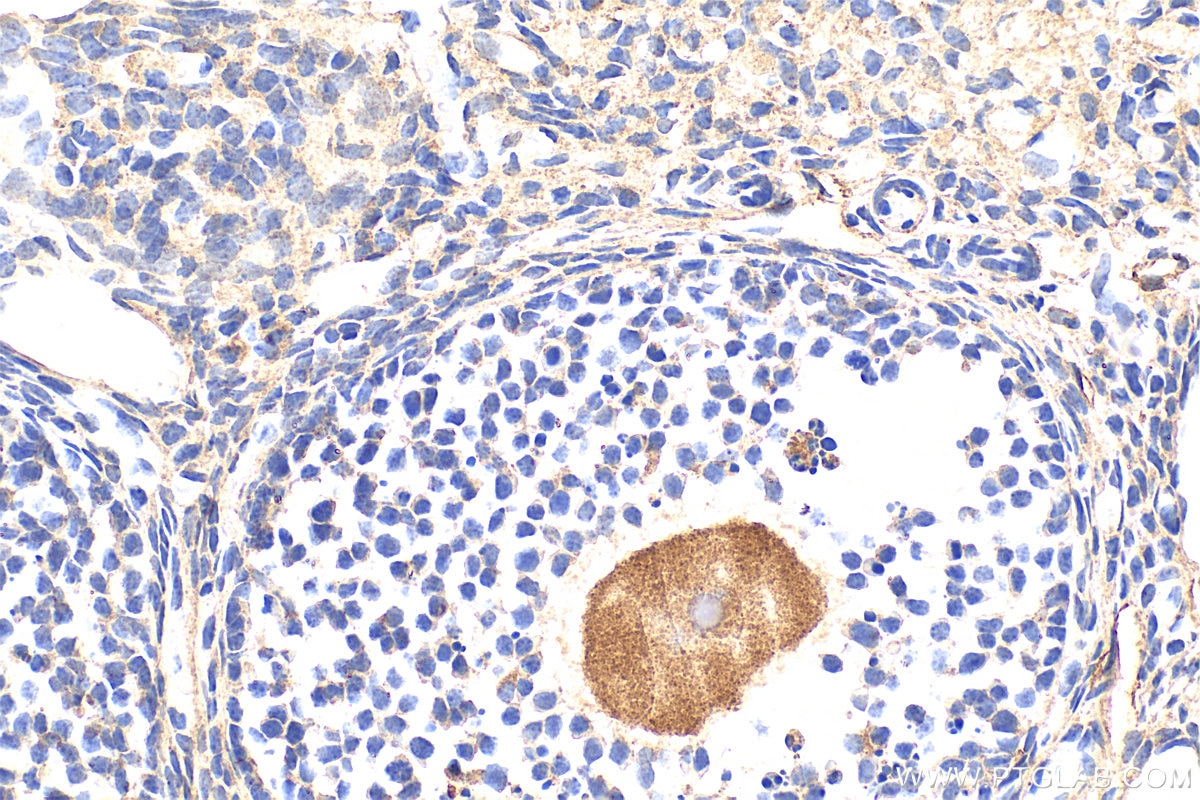Tested Applications
| Positive IHC detected in | mouse ovary tissue Note: suggested antigen retrieval with TE buffer pH 9.0; (*) Alternatively, antigen retrieval may be performed with citrate buffer pH 6.0 |
Recommended dilution
| Application | Dilution |
|---|---|
| Immunohistochemistry (IHC) | IHC : 1:50-1:500 |
| It is recommended that this reagent should be titrated in each testing system to obtain optimal results. | |
| Sample-dependent, Check data in validation data gallery. | |
Product Information
16756-1-AP targets GPR97 in IHC, ELISA applications and shows reactivity with human, mouse samples.
| Tested Reactivity | human, mouse |
| Host / Isotype | Rabbit / IgG |
| Class | Polyclonal |
| Type | Antibody |
| Immunogen |
CatNo: Ag10272 Product name: Recombinant human GPR97 protein Source: e coli.-derived, PGEX-4T Tag: GST Domain: 23-274 aa of BC064508 Sequence: KPTEGPRNTCLGSNNMYDIFNLNDKALCFTKCRQSGSDSCNVENLQRYWLNYEAHLMKEGLTQKVNTPFLKALVQNLSTNTAEDFYFSLEPSQVPRQVMKDEDKPPDRVRLPKSLFRSLPGNRSVVRLAVTILDIGPGTLFKGPRLGLGDGSGVLNNRLVGLSVGQMHVTKLAEPLEIVFSHQRPPPNMTLTCVFWDVTKGTTGDWSSEGCSTEVRPEGTVCCCDHLTFFALLLRPTLDQSTVHILTRISQA Predict reactive species |
| Full Name | G protein-coupled receptor 97 |
| Calculated Molecular Weight | 549 aa, 61 kDa |
| GenBank Accession Number | BC064508 |
| Gene Symbol | GPR97 |
| Gene ID (NCBI) | 222487 |
| Conjugate | Unconjugated |
| Form | Liquid |
| Purification Method | Antigen affinity purification |
| UNIPROT ID | Q86Y34 |
| Storage Buffer | PBS with 0.02% sodium azide and 50% glycerol, pH 7.3. |
| Storage Conditions | Store at -20°C. Stable for one year after shipment. Aliquoting is unnecessary for -20oC storage. 20ul sizes contain 0.1% BSA. |
Background Information
GPR97, also known as adhesion G-protein-coupled receptor G3 (ADGRG3), belongs to the GPCR family. GPR97 is involved in acute kidney injury (AKI) progression, with GPR97 deficiency reducing renal injury and inflammation in AKI models (PMID: 30559745).
Protocols
| Product Specific Protocols | |
|---|---|
| IHC protocol for GPR97 antibody 16756-1-AP | Download protocol |
| Standard Protocols | |
|---|---|
| Click here to view our Standard Protocols |






